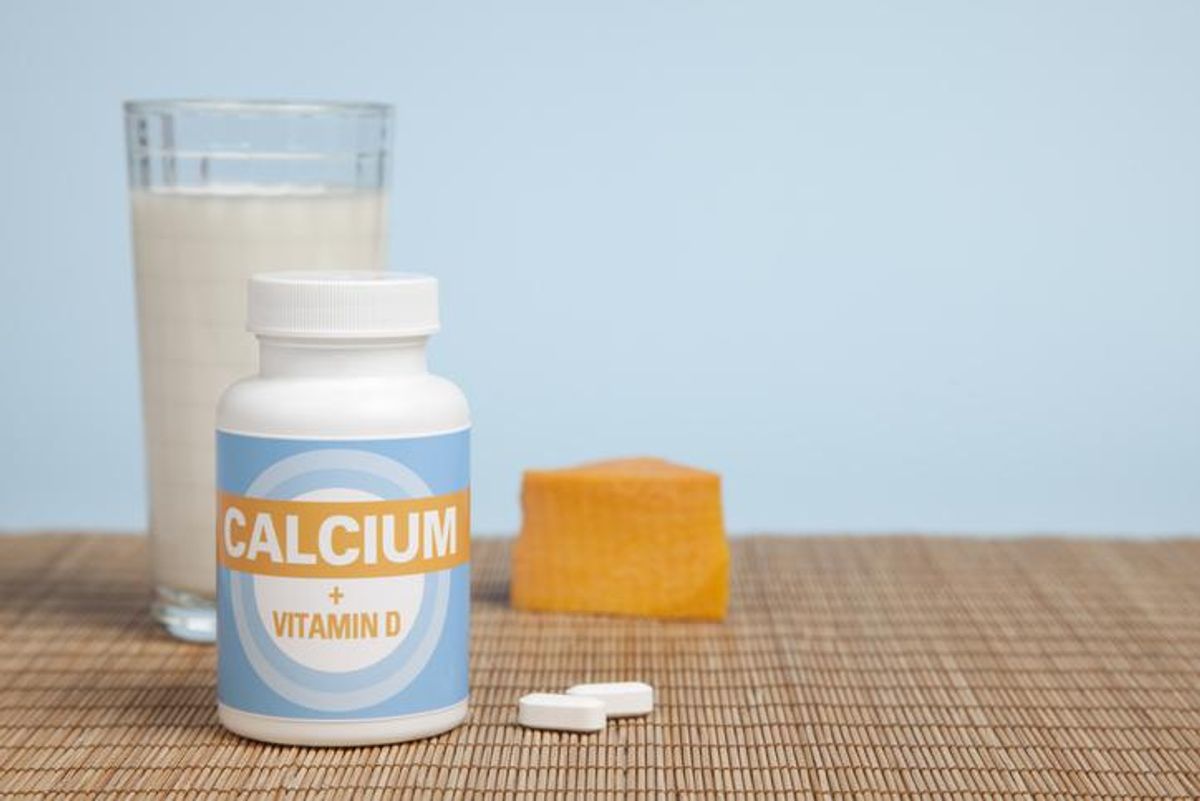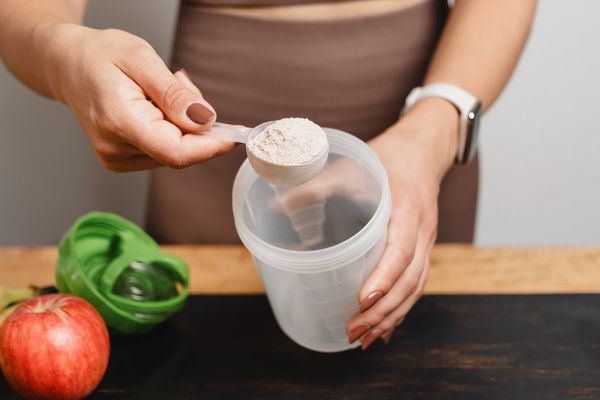Q:
I take 1,000 mg of calcium each day in two pills. Since I drink milk with my breakfast, is it best to take those calcium pills with lunch, then again with dinner for best absorption? I have osteopenia so I'm trying to get the most calcium I can. Can I just take a calcium pill with some fruit at my morning coffee break at work?
A:
Congratulations on your efforts on trying to keep your calcium bank full! Women between the ages of 19 and 50 require 1,000 mg of calcium per day, according to the National Osteoporosis Foundation. Women 51 years and older need 1,200 mg per day, while pregnant and lactating women should consume 1,000 mg per day. With 8 ounces of milk at breakfast and an additional calcium supplement of 1,000 mg per day, that gives you 1,300 mg, which meets most recommendations.
It is best to get calcium from food, but to meet calcium needs many women need to take a supplement. Calcium from supplements is best absorbed when taken in doses of 500 mg or less because the amount of calcium absorbed decreases as the amount of calcium in the supplement increases. So you should aim to take one 500 mg pill of calcium with a vitamin D supplement midday and the other 500 mg pill in the evening for optimal absorption. Your calcium supplement should also contain vitamin D, which is a vitamin necessary for calcium absorption. Be sure to check the label for the amount of elemental calcium, as this is the amount of calcium actually in the supplement. The type of calcium in your pill will determine if you need to take it with food or not. Calcium supplements that contain calcium carbonate, for example, may be best absorbed with food because stomach acid is present. Calcium citrate, another effective calcium source, can be taken at anytime, with or without food.







